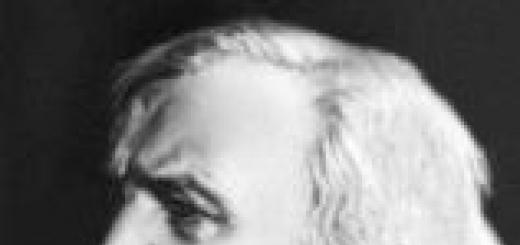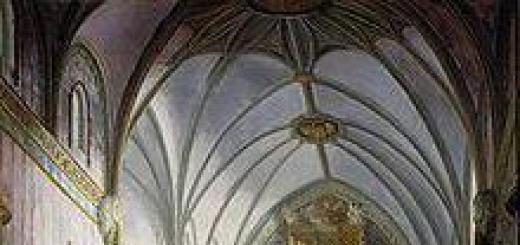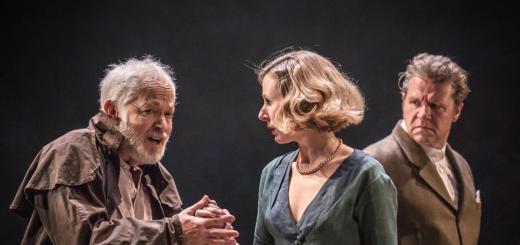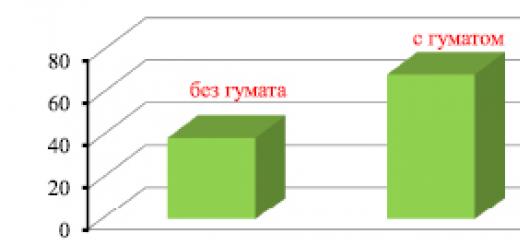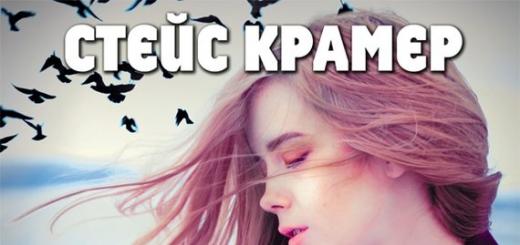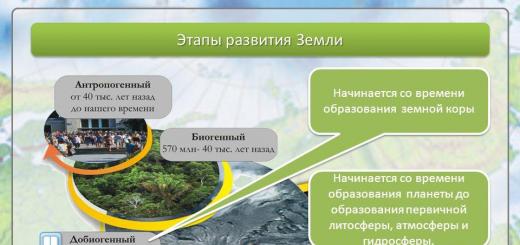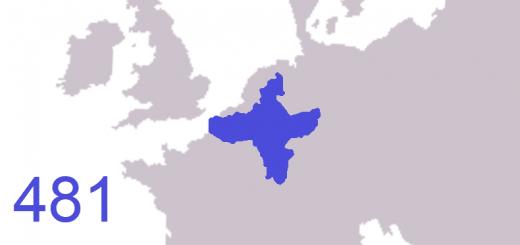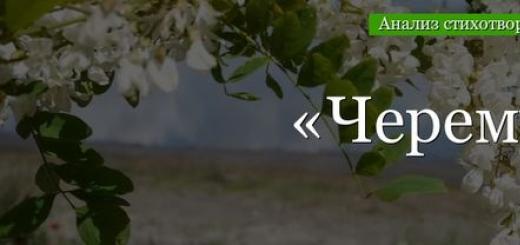To use presentation previews, create a Google account and log in to it: https://accounts.google.com
Slide captions:
Coniferous trees Kravtsun M.G. Primary school teacher MBOU Egorlyk secondary school No. 1
Guess the riddles.
What kind of girl is this: Not a seamstress, not a craftswoman, She doesn’t sew anything herself, But she wears needles all year round. Spruce
It is many hundreds of years old. He is dressed in a green sheepskin coat. Although it grows in the remote taiga, He is always held in high esteem. After all, He is very rich in cones for both adults and children. And in the cones, whatever you say, the nuts are delicious inside. Cedar
A relative has a Christmas tree with non-thorny needles, but, unlike the Christmas tree, those needles fall off. Larch
This grandmother is a hundred years old, She has no hump, She sticks out high, She looks far away, Death will come for the old woman - The grandmother will become a hut. Pine
Conifers are one of the most ancient groups of plants, dating back about 300 million years. Representatives of coniferous trees: cypress, yew, cedar, fir, juniper, pine, spruce, etc. Coniferous trees grow in abundance, in one form or another, throughout the globe, in all parts of the world. Quite often, coniferous trees dominate other plants. The size of an adult coniferous tree can reach 100 meters in height (the tallest coniferous tree is Sequoia evergreen - 115.2 meters). In addition, representatives of coniferous trees are not only the tallest, but also the thickest - Taxodium Mexicana (11.42 meters in diameter), the oldest - Durable Pine (4700 years old) and the largest - Sequoia Dendron giant (with a volume of 1486.9 m³) representatives of the flora. In Russia, the most common are spruce, pine, fir, cedar, and juniper.
Record holders
Thick -Taxodium Mexicana (11.42 m in diameter)
Old - Long-lasting pine (4700 years)
Large – Giant Sequoia (with a volume of 1486.9 m³).
Quiz
Name 5 coniferous trees (spruce, pine, fir, cedar, larch) 2. Who is spruce friends with in winter? (spruce is friends in winter with crossbill, woodpecker and squirrel) 3. Why do spruce trees have the shape of a triangle? (snow easily slides off them and does not break the branches). 4. Which coniferous tree sheds its needles for the winter? (larch)
5. Does pine or spruce have longer needles? (near pine) 6. What climate do conifers like? (cold climate) 7. What birds eat conifer cones? (crossbill, nutcracker) 8. Which coniferous tree has cones - berries? (juniper)
On the topic: methodological developments, presentations and notes
Presentation "Coniferous trees"
The presentation introduces students to the characteristics of coniferous trees, as well as their use on the farm. The presentation can be used in lessons on studying the surrounding world in grades 1-2....
https://accounts.google.com
Slide captions:
Evergreen spruce is the oldest tree in the Russian forest. Reaches 30 m. Spruce is frost-resistant and shade-tolerant.
Fir cones and seeds
Pine An evergreen tree up to 40m high. The crown is raised high, cone-shaped, and then rounded, wide. Pine lives on average up to 350 years.
Needles from the pine
Pine “blooms” in late May - early June
Cones and seeds from the pine tree
Cedar is a majestic, powerful tree. The height of the cedar is 40-42 meters, the thickness of the trunk is up to 2 meters. The cones are large. People collect pine seeds - “nuts” for future use; they are a very tasty delicacy. Cedar
Needles for food
Cedar cones
Larch Larch grows up to 50 meters and lives up to 400 years. In autumn, larch turns yellow like deciduous trees, and in winter its needles fall off.
Larch cones
Juniper An evergreen light-loving coniferous multi-stemmed tree or shrub 2-6 m in height. The crown is multi-peaked and dense. Juniper is a long-liver, its age can sometimes range from 600 to 3000 years,
The “fruits” of juniper, cone berries, are green at first, but in the second year they are blue-black with a bluish bloom and resinous pulp. Cone berries are used in cooking as a seasoning. Pine needles and cone berries are used for smoking fish and meat.
Preview:
To use presentation previews, create a Google account and log in to it: https://accounts.google.com
Slide captions:
Coniferous forest of Russia Demonstration material on environmental education of preschool children
Age determination
Use of coniferous species Larch, pine, spruce are the best materials for construction Larch and spruce are used in the production of furniture, parquet, plywood Musical instruments are made from spruce wood Cedar wood is used in pencil production Oil is extracted from pine nuts
Spruce forest It is dark in the spruce forest
Pine forest It is light and sunny in the pine forest. Pine is a light-loving plant.
Larch forest
To use presentation previews, create a Google account and log in to it: https://accounts.google.com
Slide captions:
Coniferous trees
Prepared by Petrova Nadezhda Vasilievna St. Petersburg GBDOU kindergarten No. 11 10/25/2015 2
Scots pine An evergreen tree up to 40m high. The length of the root is up to 30 m. The crown is highly raised, cone-shaped, and then rounded, wide. Pine lives on average up to 350 years. 10/25/2015 3
Pine needles The needles are triangular or flattened, located on shortened shoots in twos, long and narrow, hard, smooth, prickly (up to 8 cm long), usually remain on the shoots from 3 to 6 years. 10/25/2015 4
Pine “blooms” in late May - early June 10/25/2015 5
Pine cones and seeds 10/25/2015 6
Use of pine Pine wood is widely used. Rosin and turpentine are obtained from pine resin; with deeper processing, solvents, flavors, and adhesives are obtained. 10/25/2015 7
Common spruce 10/25/2015 8 Evergreen spruce is the oldest tree in the Russian forest. Reaches 30 m. Spruce is frost-resistant, shade-bearing.
Spruce needles Spruce needles are tetrahedral, arranged in a spiral, sitting one at a time on leaf pads. The length of the needles is up to 2 cm. The lifespan of each needle is six or more years. 10/25/2015 9
Fir cones and seeds 10/25/2015 10
Use of spruce Spruce wood is used in construction, used in the pulp and paper industry, as well as for the manufacture of musical instruments, containers, sleepers, and telegraph poles. 10/25/2015 11
On Christmas and New Year it is customary to put up a New Year tree. 10/25/2015 12
Larch Larch in favorable conditions grows up to 50 meters and lives up to 400 years. In autumn, larch turns yellow like deciduous trees, and in winter its needles fall off. 10/25/2015 13
Larch needles Larch needles are soft, tender, flattened, bright green. They grow in bunches of 20-30 pieces together. The length of the needles reaches 40 mm. 10/25/2015 14
Vegetable world. Coniferous forests (taiga)
Presentation for a geography lesson in the 7th grade of a correctional school of the VIII type
Teacher – Funin Sergey Gennadievich
Slide 2
Taiga is a huge, wild and difficult-to-pass forest in which mainly coniferous trees grow. The word taiga means "dense forest". Taiga is located in the northern part of the forest zone and occupies 80% of its total area. Taiga is the oldest and snowiest part of Russian nature. Its width in the European part reaches 800 km, and in Western and Eastern Siberia – 2150 km.
Slide 3
Coniferous trees
Conifers are trees that have needles instead of leaves. The needles are also leaves, only of a special shape - long and narrow. They are able to survive the winter because they are quite durable. The waxy skin prevents the needles from drying out. The needles also provide the tree with the necessary amount of food in winter. These leaves live for several years. Then they turn brown and fall off. But not all at once, so the tree always retains foliage. Hence the name “evergreen”.
Slide 4
- Spruce is a tall evergreen tree (up to 30 m high) with a beautiful crown. Lives on average up to 250 - 300 years (sometimes up to 600). Spruce forests are very dense, dense, and dark. Spruce grows in damp places, and its roots are located shallow in the ground, so it can be found far to the north, even in areas where permafrost is located.
- Spruce is a frost-resistant plant.
- Spruce is one of the main symbols of the New Year and Christmas.
Slide 5
Pine is an evergreen, light-loving, large, resin-rich tree. Pine is very common throughout the north of European Russia and most of Siberia. Pure pine forests are called boron and usually grow on sandy soils and rocks. Pine is distinguished by flaky bark and a powerful root system. This tree is from 35 to 75 m high. The trunk is straight, the crown is raised high. Lives on average up to 350 years. Many types of pine are not afraid of snow, frost, drought, or winds. Pine extends farthest to the south of all coniferous trees; it can be found even in the Caucasus.
Slide 6
Larch is the most common tree species in Eastern Siberia.
Height – up to 35 meters. Lives 400 – 500 years.
This is a very cold-resistant tree. Having shed its soft, tender, light green needles for the winter, larch can withstand frost of -60 degrees. Larch, like spruce, has roots that penetrate shallowly into the ground, so it can grow in places where the soil thaws from ice by only 1 meter.
In the spring, the forest, consisting of larch, has a bright green color, and in the fall it acquires a golden-yellow color. In such a forest it is light, so many bushes and herbs grow there.
Larch
Slide 7
- Cedar is similar to pine, but its needles and cones are larger and its trunk is darker.
- The cedar has a spreading crown and a slender trunk with dark gray cracking bark.
- Cedar lives on average 350 – 400 years.
- Height – up to 60 meters.
- Cedar is the only tree in the Siberian taiga whose fruits are nuts. Its tasty and nutritious seeds - nuts - serve as the main food for many forest animals and a valuable food product for humans.
ELENA MEDVEDEVA
Presentation “Coniferous trees”
Presentation"Coniferous trees"
Description of the slides:
No. 1. Topic " Coniferous trees"
№ 2. Trees are called conifers, which have needles/needs instead of leaves. Needles are also leaves. Only a special shape - long and narrow. They are strong enough that they can easily survive the winter. The waxy skin prevents the needles from freezing or drying out. Needles also provide in winter tree the required amount of food. These leaves-needles live for several years. Then they turn brown and fall off. But not all at once, so tree the foliage is always preserved and they always remain green, hence the name - "evergreen".
No. 3. B coniferous In the forests of our district you can find spruce, pine, cedar, fir, and larch.
No. 4. Pine – conifer tree with a smooth yellow trunk. Pine needles are long and sit in pairs. Pine cones have a round shape.
No. 5. Spruce is a familiar New Year tree. Spruce needles are short, rough, located singly and densely cover the branches. The cones have an oblong shape. Ate - long-lived trees.
No. 6. Fir differs from spruce in that its needles are flat, and its cones stick up and even mature ones do not fall to the ground, but scales simply fall off them.
No. 7. Cedar pine is popularly called Siberian cedar. Its needles are collected in bunches of five, and the seeds are pine nuts.
No. 8. Larch is the only coniferous trees, which turns yellow and sheds its needles for the winter.
No. 9. Find out coniferous trees on twigs and cones.
№ 10. Coniferous trees and their use. Coniferous trees: larch, pine, spruce are the best materials for construction. Larch and spruce are used in the production of furniture, parquet, and plywood. Pine is used in construction and mechanical engineering. Pencils are made only from cedar, and cedar oil for food is also made from pine nuts.
No. 11. Besides everything that coniferous trees give us oxygen. And also fruits coniferous trees– cones with seeds are food for birds and wild animals. That's why coniferous trees bring a lot of benefits and our task is to protect trees and all the nature around us!
Publications on the topic:
Presentation “Trees of Udmurtia” Topic: “Kolobok invites you to the forest” Part one: “Trees of Udmurtia” Program content: Purpose: Familiarization with the trees of Udmurtia. Tasks:.
Lesson summary “Trees are all important to us - all kinds of trees are needed” Goal: expand children’s understanding of living nature and instill a value attitude towards it Educational: continue to expand knowledge.
Abstract “Coniferous trees of the Urals” of the cognitive cycle for children of the preparatory group with disabilities Municipal preschool educational institution "Child Development Center - Kindergarten No. 98" of the city of Magnitogorsk Pedagogical CONSPECT.
Summary of GCD on the natural world in the preparatory group “Coniferous trees of our forest” Summary of direct educational activities for children of the preparatory group in the educational field of cognitive development.
Ecology lesson in the middle group “Coniferous trees”. Goal: to consolidate and deepen children’s knowledge about spruce and pine, as representatives of conifers.
Goal: to develop knowledge about trees (what they have in common and how they differ) Objectives. Observation. – expand children’s understanding of trees.
Lesson summary in the form of an ecotour “Coniferous secrets” Municipal budgetary educational institution “Kindergarten No. 14 in Krasnoarmeysk, Saratov Region” Lesson notes Ecotour “Conifers.



